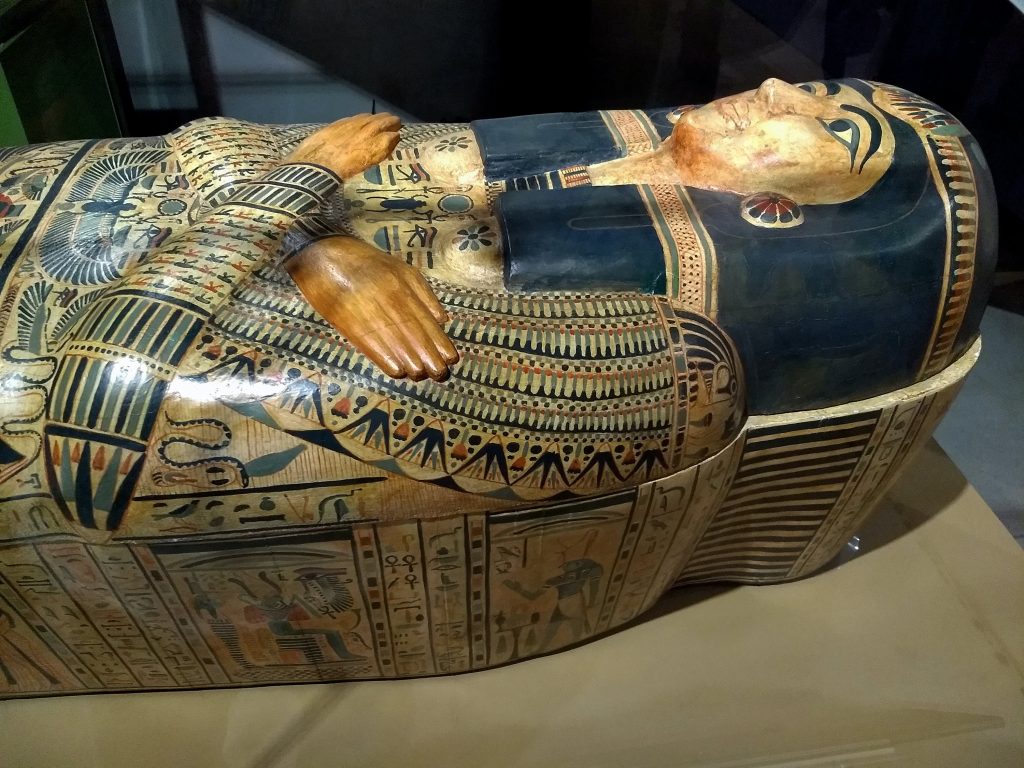As summer approaches, Egypt, other MENA countries, European nations and the United States face lost foreign currency inflows from tourism’s high-season as COVID-19 fears persist. For Egypt that is a significant problem as the sector employs one-tenth of Egyptians, generating $13 billion last year and accounts for 5 percent of GDP, as reported by The Economist in May.
That drought could last until there is a mass-produced COVID-19 vaccine. “I think it is important to put this on the table: This virus may become just another endemic virus in our communities and this virus may never go away,” said Michael Ryan, executive director of the World Health Organization Emergencies Program, at a press event covered by ABC Australia in May.
As a result, governments are developing new smartphone applications to help travelers deal with their fear of being infected. Those apps inform users if someone with COVID-19 visited a location in the past two weeks or if someone nearby have tested positive. According to the World Economic Forum, more than 30 governments are working on a wide range of COVID-19 tracking apps.

David Meyer, a contributor to Forbes, wrote in May that using such tracking apps would be the lifeline for reviving tourism in the short term. “The plan to save the sacred summer vacation depends on contact-tracing apps,” he wrote. However, a couple of issues may delay linking such tools and vacationers.
World of trackers
China was the first country to deploy tracking apps starting in February when the government announced it would reopen Wuhan, COVID-19’s ground zero. “The resulting information and trends are invaluable for governments seeking to track the COVID-19 outbreak, warn vulnerable communities, and understand the impact of policies such as social distancing and confinement,” according to an Organisation for Economic Co-operation and Development (OECD) report in April.

The app, which New Zealand also uses, gives each citizen a QR code or barcode linked to an ID, mobile phone number, and medical records, including COVID-19 test results. The barcode is then scanned when a user enters supermarkets, malls, and restaurants. Additionally, the government could automatically alert the mobile phone owner if they are in a location a COVID-19 patient visited during the previous two weeks.
Other countries are developing their versions of tracking apps. Australia, the Czech Republic, France, and Singapore use Bluetooth technology to upload COVID-19 test results and share it anonymously with other app users within 10 meters.
Colombia, Hungary, India, and Bahrain’s government-developed apps maintain a log of the GPS data of any COVID-19 positive case in a government database. The app then alerts healthy users, using GPS coordinates, in real-time, if they approach a location that a confirmed case visited in the previous two weeks. Colombia’s solution, unlike the others, doesn’t consume data. Ghana’s tracking system goes one step further, sending data to the Ministry of Health to create a COVID-19 infection map not shared with the public. On the other hand, Iceland and South Korea send the tracked data to a public website that draws an infection map for everyone to see.
Israel’s Ministry of Health app relies on GPS and mathematics to track users’ movements in the previous 14 days to determine if they crossed paths with a COVID-19 patient. The ministry saves medical records anonymously along with the app’s unique ID code, and tracking results are stored only on the device to ensure privacy.
Apple and Google are currently working together to develop a compatible native tracking app for their mobile phones. It will mainly use GPS data and digitized government medical records. Their Bluetooth-based platform could conflict with government-developed alternatives. In March, the United Kingdom announced it wouldn’t allow the Apple/Google tracking app to operate in the country because of privacy concerns, given that there wouldn’t be any government oversight.

Egypt is in the early stages of considering such apps. According to Privacy International, a rights group, in April, parliamentarian Ahmed Refaat formally proposed that the government develop a COVID-19 tracking app to send test results to it and share the locations of those who test positive. Al Ahram reported in May the government had produced an app that receives the latest COVID-19 stats in Egypt, but there was no mention if it could track the movements of individuals.
Tourism link
Shifting the purpose of those tracing apps from a tool to track COVID-19 patients to a device tourists use to stay safe while vacationing could help reboot the tourism sector.
Nearly two-thirds of international travelers already rely on travel websites and apps to organize their trips, according to a World Bank report in February. Accordingly, travel agencies have been building online and mobile versions of their platforms and offering more services through them to accommodate rising demand. The report also noted that online tourist-related services are generally more trusted than word-of-mouth.
Accordingly, developing a COVID-19 tracking app that is tourist-friendly could prove popular among vacationers. An analysis by Rishabh Software, an international software engineering company, travel-based mobile apps are the seventh-highest category of download and used by 60 percent of smartphone owners.

The functions those apps have in common with COVID-19 apps include GPS access and tracking, instant updates and notifications, and mobile broadcasting. The report points out that real-time tracking used in ride-hailing apps, and geo-tagging information such as review websites, are the two most used features in tourist apps.
Those services are the cornerstone of any COVID-19 tracking app, whether it uses mobile data or Bluetooth connectivity to alert users of high-risk areas. Tracing apps can be a stand-alone tool or integrated with well-known travel apps such as Booking.com, Expedia, and Trivago.
Missing pieces
According to Meyer, from Forbes, the big issue is the capability of operating in multiple countries. “If people are able to cross borders again, it’s not hard to see how a lack of interoperability would stymie the apps’ objective,” he wrote in Forbes in May. “Each country is preparing its own contact-tracing app — and some have different ideas about how the technology should work.”
The straightforward solution is for all countries to adopt the platform Apple and Google are co-developing. Another plus is that individuals’ health information is adequately shielded from the governments and companies that allow apps to talk to one another, wrote Meyer. “This is the approach countries such as Germany and Italy are choosing,” he added.
However, the U.K. and France are adopting a closed tracking system, as they are concerned about data privacy in smartphone operating systems. “We are not against Apple and Google, but we don’t want to be forced into a certain technology approach,” French digital affairs minister Cédric O told the FinancialTimes. “States should be able to make their own choices on such a critical matter — it’s a question of sovereignty.”
The other missing link is data privacy legislation, as the tracking apps share sensitive health information with the public. The EU Commission was the first to address that concern. In April, it organized a plenary session where they stressed that any digital measures against the pandemic must comply with data protection and privacy legislation. The EU Parliament added that using those apps should not be obligatory. Members “stressed the need for anonymous data and said that to limit the potential risk of abuse,” the EU Parliament added.

The third issue is scale. Lawrance Wong, minister of national development in Singapore, noted in an interview with The Straits Times in April that a million out of Singapore’s population of 5.63million have downloaded the COVID-19 tracking app. However, that is not enough to yield an accurate picture of the disease. “In order for TraceTogether to be effective, we need something like three-quarters — if not all — of the population to have it. Then we can really use that as an effective contact-tracing tool,” he said.
To reach such a large scale, China mandates that people use the QR code in those apps to access essential services, such as public transportation and supermarkets. In India, all public and private sector employers are responsible for ensuring their employees download the government’s tracking app (Aarogya Setu). “It shall be the responsibility of the heads of the respective organizations to ensure 100 percent coverage of this app among employees,” said Shri Amit Shah, India’s union home secretary to The Week, an Indian publication.

For countries like Egypt, where tourism is vital, and the government is still digitizing parts of the healthcare system, the state should expedite the digital transformation of both. That upgrade must be compatible with the latest solutions developed around the world. “The stakes are incredibly high for these tools,” wrote Shirin Ghaffary, a reporter for Recode.







